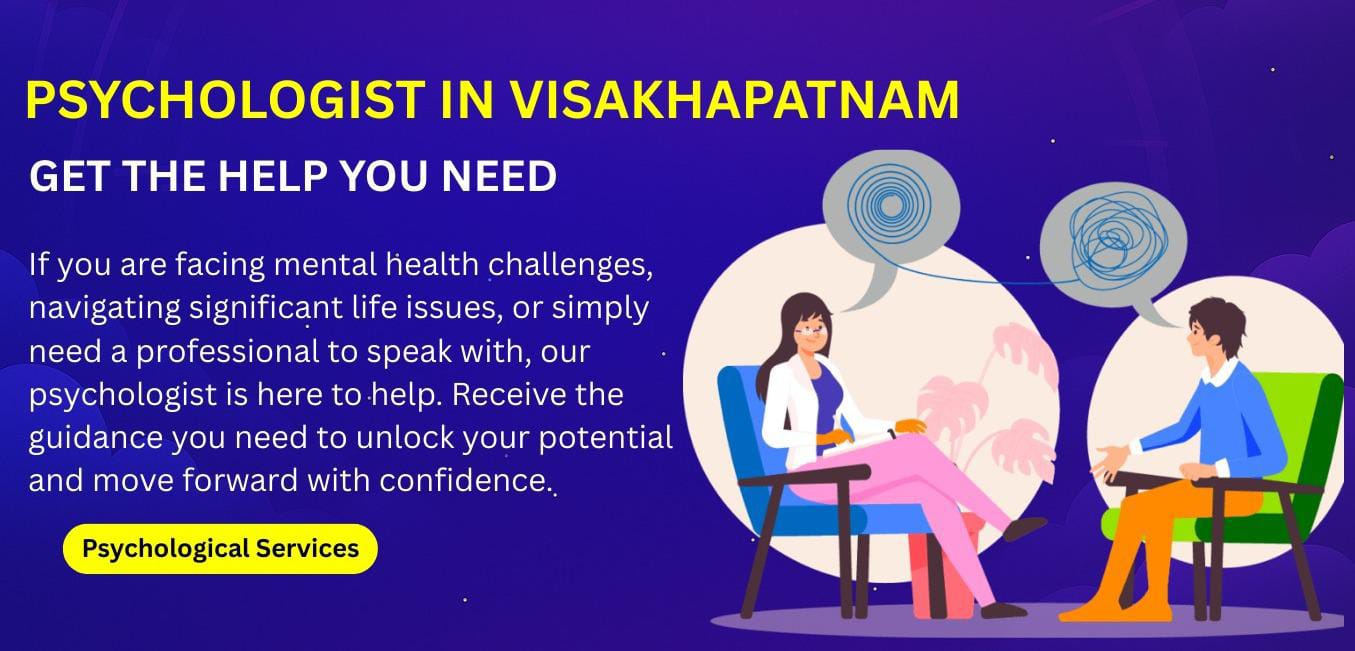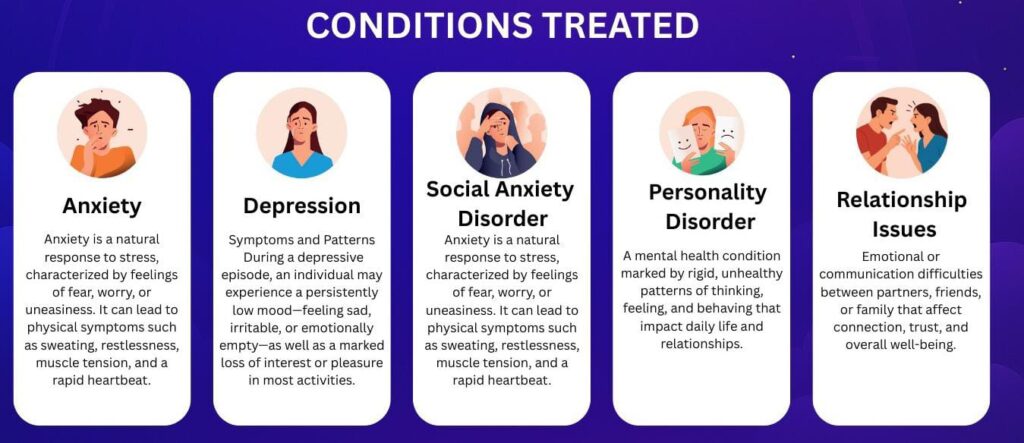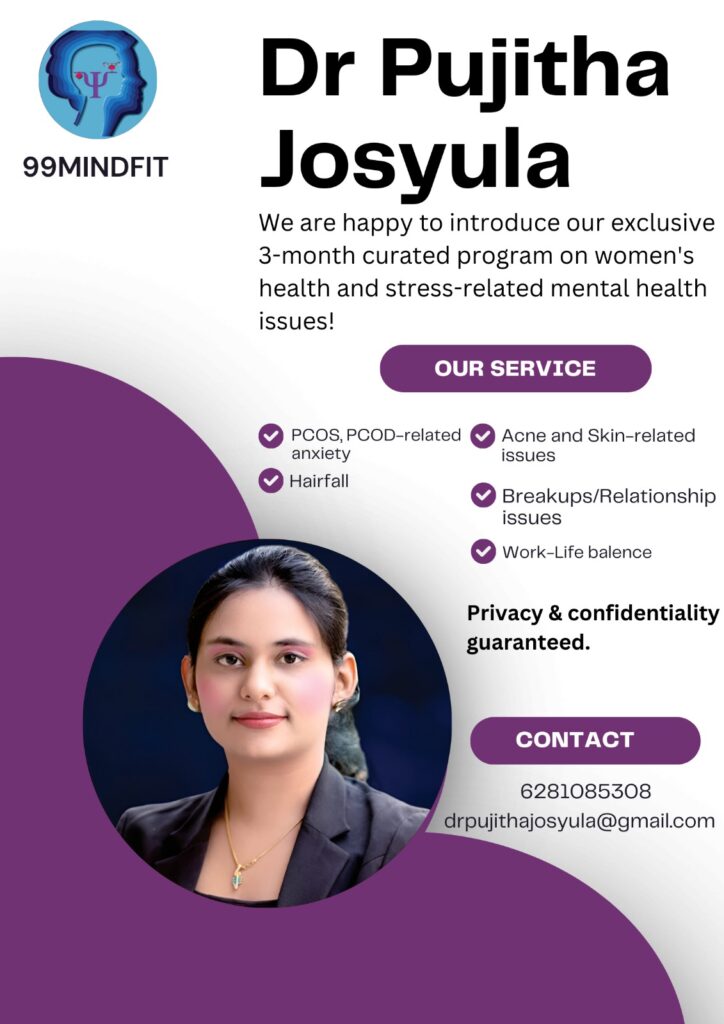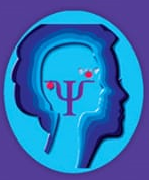

Our Services
Curated Women’s Health Program

Self-esteem Therapy?
Self-esteem and self-worth are related to how we value ourselves and our abilities. They affect our confidence, motivation, and happiness. People with low self-esteem or self-worth may feel insecure, inadequate, or unworthy of love and respect.
Low self-worth and self-esteem can be the result of many different things
• Mistreatment by others
• Bullying and surviving abuse
• Negative self-talk
• Trauma
• Lack of positive supports
Therapy can help improve self-esteem and self-worth by providing a safe and supportive space to explore the root causes of negative self-image, challenge distorted beliefs, and develop coping skills. It can also help identify and celebrate one’s strengths, achievements, and values and foster positive relationships with oneself and others.
What are the top signs of low self-esteem or self-worth?
People who have low self-esteem or self-worth often have a negative view of themselves and their abilities, and may struggle with confidence, happiness, and relationships.
Here are some of the top signs of low self-esteem and self-worth:
• Sensitivity to criticism: People with low self-esteem or self-worth may be extra sensitive to criticism, whether from others or themselves. They may see it as confirming their flaws and failures, and feel ashamed or defensive. They may also have difficulty accepting positive feedback or compliments, and dismiss them as insincere or undeserved.
• Social withdrawal: People with low self-esteem or self-worth may avoid social situations or interactions, because they fear being judged, rejected, or embarrassed. They may isolate themselves from others, or cancel plans at the last minute. They may also have trouble making or keeping friends, or expressing their needs and feelings in relationships.
• Hostility: People with low self-esteem or self-worth may lash out at others, especially if they feel threatened or exposed. They may be aggressive, rude, or sarcastic, and blame others for their problems. They may also have difficulty trusting others, or feel paranoid or suspicious of their motives.
• Excessive preoccupation with personal problems: People with low self-esteem or self-worth may constantly worry about their own issues, and neglect other aspects of their lives. They may ruminate over their mistakes, failures, or shortcomings, and magnify their negative qualities. They may also have trouble empathizing with others, or helping them with their problems.
• Physical symptoms: People with low self-esteem or self-worth may experience mental and physical health problems, such as depression, anxiety, eating disorders, substance abuse, or self-harm. They may also have poor hygiene, appearance, or posture, and neglect their personal care. They may also suffer from headaches, stomachaches, fatigue, or insomnia.
These are some of the most common signs of low self-esteem and self-worth, but there may be others as well. If you or someone you know is struggling with these issues, it is important to seek professional help.
How can therapy help improve self-esteem and self-worth?
Some of the benefits of therapy for self-esteem and self-worth are:
• Increased self-acceptance and self-compassion
• Reduced self-criticism and perfectionism
• Enhanced self-confidence and assertiveness
• Improved mood and well-being
• Reduced stress and anxiety
• Better communication and interpersonal skills
• Greater satisfaction and fulfillment in life
If you are struggling with low self-esteem or self-worth, you are not alone. Many people feel this way, but not everyone seeks help. Therapy can be a helpful way to overcome it and discover your true potential.
You deserve to feel good about yourself and your abilities. You are worthy of love and respect. You are enough.
Anxiety & Panic Therapy
If you are tormented by anxiety, you are not alone. Anxiety is one of the most common struggles. It is also incredibly treatable.
What is Anxiety?
Anxiety is a common mental health condition that affects millions of people around the world. It can cause a range of physical and psychological symptoms that interfere with your daily life and well-being. Some of the most common signs of anxiety are:
• Excessive worrying: You may find yourself worrying about things that are unlikely to happen or out of your control. You may also worry about the same things over and over again, even when there is (seemingly) no reason to do so.
• Difficulty concentrating: You may have trouble focusing on tasks, remembering things, or making decisions. You may also get easily distracted or lose track of time.
• Agitation: You may feel irritable, impatient, or angry. You may also snap at others, have mood swings, or feel like you are losing control.
• Fatigue: You may feel tired, drained, or exhausted. You may also have trouble falling asleep or staying asleep, or experience nightmares. This can affect your energy levels, motivation, and mood.
• Physical symptoms: You may experience various physical sensations, such as sweating, trembling, racing heart, chest pain, shortness of breath, dizziness, nausea, or stomach problems. These symptoms can mimic other medical conditions and cause you to worry more.
• Avoidance: You might avoid certain activities or situations that make you feel anxious, even if they aren’t dangerous or harmful. For example, you might avoid public speaking because it makes you feel uncomfortable.
If you experience any of these symptoms frequently or severely, you may have anxiety. Anxiety disorders are treatable and manageable with the help of professional help and self-care strategies. If you think you may have an anxiety disorder, please reach out to a qualified mental health provider for diagnosis and treatment. You are not alone and there is hope for recovery.
What can I do about my Anxiety?
Many people try to get rid of it by fighting or avoiding it, but this only makes it worse. The more we resist anxiety, the more it grows and feeds on itself.
A better way to deal with anxiety is to learn to accept and embrace it, rather than push it away. This helps us calm our nervous system and feel more settled in our body. One of the skills we need to learn is how to tolerate the feeling of anxiety and let it pass naturally.
Another skill we need to develop is how to listen to our emotions and process them in a healthy way. Anxiety often masks other feelings that we are afraid or unwilling to face, such as sadness or anger. When we ignore or suppress these feelings, they create tension and unrest in our mind and body. Anxiety is like a warning sign that something is wrong inside us. Mindfulness helps us become aware of our emotions and move through them with curiosity and compassion. When we do this, we discover our true self and what we need to heal and grow. Sometimes, we may need the help of a therapist who can guide us through this journey of self-discovery and emotional healing.
When we embrace our emotions, we not only reduce our anxiety, but also unlock our potential for strength, passion, and joy. Anxiety does not have to control your life. You can learn to manage it and live more fully. If you struggle with any form of anxiety, from stress to panic attacks, please reach out. You deserve better.
If you’re ready to get help with anxiety, click the button below to set up an appointment with one of our specialists!
Break up/ Marital/ Relationship issues, Therapy.
Couples can find such joy and pain in each other. Are you suffering in your relationship? Or has the connection faded?
Are you feeling stuck in your relationship? Struggling to communicate, resolve conflicts, or meet each other’s needs? Want to rekindle the spark and intimacy you once shared?
If any of this resonates, you’re not alone. Many couples today face relationship challenges, especially amid the stress and demands of modern life. But with professional guidance and targeted relationship therapy, it’s possible to overcome these hurdles and build a stronger, more fulfilling connection. Deep Eddy’s licensed couples counselors are here to help you do just that.
Our Approach to Couples Counseling
Our Psychotherapy offers couples access to advanced, evidence-based couples counseling approaches, such as the Psychobiological Approach to Couples Therapy (PACT). This therapy method helps partners understand each other’s emotional responses, including stress reactions and attachment needs, facilitating shifts from conflict to connection.
Our approach is active, experiential, and concrete, focusing on real-time interactions and practical strategies for deepening intimacy and improving communication. Couples therapy with us is often engaging, empowering, and yes—even fun!
Through this work, couples are encouraged to envision and actively create the relationship they truly desire.
Research highlights that a strong, healthy partnership is key to physical and emotional wellbeing. In fact, the longest longitudinal study on human health found that relationships are a top predictor of overall life satisfaction. That’s why we emphasize proactive relationship care—not just as a last resort, but as a means for growth and mutual discovery.
Our experienced couples counselors serve clients across. Whether your relationship is in a tough spot or just needs a tune-up, we are here for you.
How Our Couples Therapy Works
Therapy begins with an intake session where you’ll outline goals and establish a foundation for growth. sessions emphasize open communication, emotional expression, and pattern recognition, equipping both partners with tools for fostering healthier dynamics.
Together, you and your therapist will work toward building a resilient, fulfilling relationship based on mutual respect and understanding.
Depression Therapy
DepressionVery often depression emerges when a person’s mind does not know how to process scary emotions, such as anger, and therefore simply shuts down instead.
Therapy for Depression
Depression is one of the most common reasons people go to therapy. Whether you are burned out from stress and overworking, stuck in a rut without meaning or purpose, or losing hope for the future, we are here for you.
Depression is a common and serious mental health condition that affects how you feel, think, and act. It can cause persistent feelings of sadness, hopelessness, and loss of interest in activities you used to enjoy. It can also interfere with your daily functioning, such as work, school, or relationships.
If you are struggling with depression, you are not alone. According to the World Health Organization, more than 264 million people of all ages suffer from depression worldwide. Depression can affect anyone, regardless of age, gender, race, or background.
Here are the top five signs that you (or a loved one) are depressed:
• Feeling sad, empty, or hopeless for more than two weeks. This is the most common symptom of depression and can affect how a person feels, thinks, and behaves.
• Losing interest or pleasure in activities that used to be enjoyable. This is called anhedonia and can indicate a loss of motivation and zest for life.
• Having trouble sleeping or sleeping too much. Depression can affect a person’s sleep patterns and cause insomnia or hypersomnia. Both can affect a person’s energy level, mood, and concentration.
• Feeling worthless or excessively guilty. Depression can lower a person’s self-esteem and make them feel as if they have no value or purpose. They may also blame themselves for things that are not their fault or dwell on past mistakes.
• Having thoughts of death or suicide. Depression can make a person feel hopeless and as if there is no way out of their situation. They may think about ending their life or harming themselves. This is a serious sign that requires immediate attention and help.
However, depression is very treatable. Therapy is one of the most effective ways to work through depression and improve your quality of life. Therapy can help you understand the causes and triggers of your depression, challenge unhealthy and unhelpful thoughts and beliefs, develop coping skills and strategies, and set realistic and achievable goals.
We offer a variety of therapy services to help you overcome depression and reclaim your happiness. Our therapists are trained and experienced in working with clients who have depression. They will provide you with a safe, supportive, and confidential space to explore your feelings and thoughts, and help you find the best solutions for your unique situation.
Whether you are looking for individual, couples, family, or group therapy, we have the right option for you. We also offer online therapy sessions for your convenience and comfort. You can choose the therapist that suits your needs and preferences from our diverse and qualified team.
Don’t let depression hold you back from living the life you deserve. Contact us today to schedule your first appointment and take the first step towards healing and recovery. We are here to help you every step of the way.
Book your first session for depression treatment in just 5 minutes. Call now—no wait times.
Depression is a condition that affects your vitality and well-being. Sometimes, depression can arise when you have difficulty expressing and processing emotions that scare you, such as anger. Instead of facing them, your mind may shut down and avoid them. However, this can also prevent you from feeling alive, joyful, and meaningful. We can help you access and process your emotions in a healthy way, so that you can embrace and nurture your true self, and heal from the past traumas that triggered your emotional defenses.
Medication can be a useful tool for treating depression, especially when it has a biological basis rather than a situational one. However, medication alone is not enough. Research shows that having supportive and positive relationships is crucial for recovery. Working with a therapist can provide you with a safe and stable relationship where you can explore the root causes of your depression and learn how to cope with them. You will also learn how to improve your other relationships and build or strengthen your support network.
We know that depression can make you feel hopeless and stuck, and that recovery can take time. But we also know that there is hope and healing at the end of the journey. Having someone to walk with you along the way can make a big difference. Let us help you find your way back to life!
If you’re ready to get help with depression, click the button below to set up an appointment with one of our specialists!
Therapy for Eating Disorders
Eating disorders like Anorexia Nervosa, Bulimia Nervosa, and Binge Eating Disorder (BED) require a multi-faceted approach:
A. Cognitive Behavioral Therapy (CBT)
✅ CBT-E (Enhanced CBT) is the gold standard for eating disorders.
✅ Helps identify and change unhealthy thought patterns related to food, weight, and body image.
✅ Provides strategies to manage emotional triggers that lead to disordered eating.
B. Dialectical Behavior Therapy (DBT)
✅ Focuses on emotional regulation, distress tolerance, and mindfulness.
✅ Helps patients with binge eating and emotional eating.
C. Family-Based Therapy (FBT) (for Adolescents)
✅ Involves family members in the treatment process.
✅ Especially effective for teenagers with Anorexia.
D. Nutritional Counseling
✅ Works alongside therapy to restore a balanced diet.
✅ Helps correct malnutrition and irregular eating patterns.
Therapy for Sleeping
Sleeping disorders like Insomnia, Sleep Apnea, and Restless Leg Syndrome often require behavioral interventions alongside medical treatment.
A. Cognitive Behavioral Therapy for Insomnia (CBT-I)
✅ The most effective treatment for chronic insomnia.
✅ Focuses on improving sleep hygiene, reducing anxiety about sleep, and restructuring negative thoughts.
B. Sleep Restriction Therapy
✅ Reduces time spent in bed to improve sleep efficiency.
C. Relaxation Techniques & Mindfulness-Based Therapy
✅ Meditation, Progressive Muscle Relaxation (PMR), and Deep Breathing help reduce anxiety before sleep.
✅ Helps people with stress-related insomnia.
D. Light Therapy for Circadian Rhythm Disorders
✅ Exposure to bright light in the morning helps reset the body clock.
✅ Useful for Delayed Sleep Phase Syndrome (DSPS) and Shift Work Sleep Disorder.
Trauma & PTSD Therapy
You are a survivor. We see you.
Whether you survived a car accident, an abusive relationship, a childhood of bullying, or watching a loved one die, you’ve survived something traumatic.
Sometimes trauma happens in one big, horrific event. Sometimes it happens through a lifetime of smaller (but no less terrible) experiences, much like sandpaper slowly shaping your thoughts and feelings over time.
No matter what you’ve gone through, we want to help.
Our trauma therapists work with kids, teens, and adults. Contact us today to start your healing journey.
Book your first session with a trauma specialist in just 5 minutes. Call now—no wait times.
What is trauma, really?
Trauma is what you experience when your mind and or body experience something unexpected, disturbing, and or otherwise overwhelming (too much too soon). When most people think of trauma, they imagine combat veterans coming back from war. But trauma happens to people all the time through experiences such as:
• Domestic abuse
• Violence
• Public humiliation
• Car accidents
• Bullying
• Getting fired at work
• Being the target of a hate crime
• Witnessing something awful happen to someone else
• Sexual assault and rape
• Being raised by a narcissist or emotionally immature parent
• and the list goes on
Sometimes people survive these experiences and recover quickly. But often, these events cause deep emotional wounds that require professional support and intervention. When trauma goes unresolved, it leads to posttraumatic stress (PTSD) disorder. When someone has multiple posttraumatic stress reactions, we call it Complex Posttraumatic Stress (CPTSD).
CPTSD and PTSD are (unfortunately) common mental health challenges that can affect anyone who has experienced or witnessed a distressing event. You may feel overwhelmed, anxious, angry, or numb. You may have nightmares, flashbacks, or intrusive thoughts that make it hard to enjoy life. You may feel isolated, misunderstood, or ashamed of what happened to you.
But it doesn’t have to stay that way.
We understand how trauma can impact your well-being and your relationships. We offer a range of therapy services to help you heal from the past and move forward with confidence and hope.
How we can Help With Your Trauma
Our therapists are trained in evidence-based approaches that have been proven to be effective for trauma and PTSD, such as:
• Eye movement desensitization and reprocessing (EMDR): This is a nontraditional form of psychotherapy that uses eye movements to help you process traumatic memories and change how you react to them.
• Cognitive processing therapy (CPT): This is a type of cognitive therapy that helps you recognize and challenge the negative beliefs that are keeping you stuck after a trauma.
• Trauma-focused cognitive behavioral therapy (TF-CBT): This is a type of exposure therapy that helps you safely face the situations and memories that you find frightening so that you can learn to cope with them effectively.
• Internal Family Systems (IFS): This is a depth-oriented approach to therapy that helps you connect with the various aspects of yourself and learn to foster a greater sense of self-love, wellness, and resolution to inner pain.
Our therapists will work with you to find the best type of therapy for your needs and goals. We will also help you develop skills to manage your symptoms, cope with stress, and improve your self-esteem and relationships. We offer individual and group therapy sessions, as well as online psychotherapy for your convenience.
Grief & Loss Therapy
Grief is a natural response to loss—a process that allows us to heal and move forward. Whether you’re grieving the recent loss of a loved one or coping with unresolved pain from the past, allowing yourself to feel and process these emotions is essential to finding peace.
Our grief therapists provide a compassionate, judgment-free space where you can process your feelings, release emotional pain, and begin to rediscover hope.
Our Approach to Grief & Loss Therapy
we recognize that grief is a deeply personal experience. Our approach to grief counseling is empathetic, personalized, and paced to your comfort level. Our grief counselors help you:
• Honor your unique journey: Grief isn’t linear. We support you in navigating it at your own pace.
• Process complex emotions: Anger, guilt, sadness, or confusion are explored in a safe and supportive environment.
• Reconnect with hope: Using evidence-based methods like mindfulness, cognitive-behavioral therapy (CBT), and narrative therapy, we guide you toward healing and growth.
You don’t have to face this alone. We’re here to help you find the peace and resilience you need to move forward.
How Our Grief Therapy Works
Initial Consultation: We begin by understanding your loss, your grief timeline, and the emotional challenges you’re facing. This allows us to tailor therapy to your specific needs and match you with the right grief counselor.
Tailored Therapy Sessions: Therapy is customized to suit your healing journey. Methods may include mindfulness practices, journaling, creative therapies, or traditional talk therapy.
Ongoing Support: As you progress, we help you recognize milestones, manage setbacks, and incorporate strategies to sustain your emotional well-being.
Childhood Trauma Therapy
At Deep Centered, we understand the unique challenges of healing from childhood trauma. Our compassionate, trauma-informed approach focuses on providing a safe, non-judgmental space where you can work through difficult memories. Using evidence-based techniques such as Cognitive Behavioral Therapy (CBT), Eye Movement Desensitization and Reprocessing (EMDR), and Trauma-Focused Cognitive Behavioral Therapy (TF-CBT), our therapists guide you on a path toward healing.
Whether you’re dealing with unresolved trauma, anxiety, or emotional regulation issues, our therapy for childhood trauma offers the support you need to rebuild and thrive.
Therapy for Women
Whether you’re dealing with life transitions, stress, or mental health issues, therapy for women offers a safe, supportive space to explore your feelings.
Our Approach to Women’s Therapy
At Deep Centered, we understand that women face distinct challenges at different stages of life—from adolescence to motherhood and even menopause. Our approach is designed to address these specific mental health needs with compassion and expertise. We offer counseling that acknowledges the emotional, physical, and social complexities women experience, creating an environment that fosters understanding and growth.
Our therapists specialize in areas like anxiety, depression, trauma, self-esteem, and relationship concerns, using evidence-based therapies to empower women. Whether through Cognitive Behavioral Therapy (CBT) or mindfulness practices, our counseling for women is personalized to your life and needs.
Therapy for Men
Our therapy for men provides a safe and supportive space for you to explore those issues, whether it’s managing stress, coping with anger, or navigating significant life changes.
We understand that men face unique mental health challenges. Our therapy for men provides a safe and supportive space for you to explore those issues, whether it’s managing stress, coping with anger, or navigating significant life changes. We’re here to help you take charge of your mental health with compassion and expertise.
Therapy for Men
We understand that men face unique mental health.
Our Approach to Men’s Therapy
Men often experience mental health challenges that can be difficult to talk about. We specialize in addressing these issues, offering therapy for men that focuses on understanding and meeting your needs. Whether you’re dealing with depression, anxiety, fatherhood, anger management, or other life transitions, our tailored counseling sessions provide the support you need.
Our men’s counseling includes evidence-based treatments such as cognitive-behavioral therapy (CBT), mindfulness practices, and solution-focused therapy, all designed to empower you and help you overcome the struggles you face. Connect with a Men’s Therapy Expert.
At 99 Mindfit services,
we provide a comprehensive range of psychological services designed to support your mental health
and personal growth. Our offerings include:
✅ Psychotherapy (Counseling) — For individuals, couples, families, and groups seeking support through life’s challenges.
✅ Assessments — Comprehensive evaluations to help identify mental health concerns and guide effective treatment.
✅ Coaching — Personalized guidance to help you achieve your goals, improve performance, and enhance well-being.
If you have questions about our services or would like to know how we can support you, feel free to reach out at
call: 6281085308 email: drpujithajosyula@gmail.com.
We’re here to help you on your journey toward healing and self-discovery.
Psychotherapy
Psychotherapy (also called counseling or therapy) offers a chance for personal transformation, relief from distress and emotional suffering, and progress towards your goals. Members of the 00mindfit community have provided therapy for Indians since the 2010s, and our clinicians are continuously training and learning about the latest evidence-based methods to best serve our clients.
99mindset Psychotherapy offers individual therapy, couples therapy, group therapy, and family therapy services.
Individual Psychotherapy
Individual therapy is your chance to work one-on-one with a qualified, expertly trained clinician dedicated to helping you have the life you deserve. Our psychologists and therapists are dedicated to helping you learn to love yourselves and others more, and we would be thrilled to join you on your healing journey.
Group Psychotherapy
Group therapy is the best option for those who want to understand themselves and others on a deeper level. Group is a bit of a social sandbox that offers opportunities to explore feelings that arise in relationships. As you grow to understand yourself and how others see you, these insights will pay off in your connections outside of therapy.
Group Psychotherapy
Have you ever felt alone, misunderstood, or overwhelmed by your problems?
Do you wish you had someone who could listen to you, support you, and help you cope?
Group therapy may be the solution.
Group therapy is the best option for those who want to understand themselves and others on a deeper level. Group is a bit of a social sandbox that offers opportunities to explore feelings that arise in relationships. As you grow to understand yourself and how others see you, these insights will pay off in your connections outside of therapy.
Remote Therapy
Online therapy, also known as e-therapy, teletherapy, and remote therapy, is just like regular in-person therapy. The only difference is, as the name suggests, you and your therapist work together online or over the phone.
Our therapists use fully HIPAA-compliant, confidential technology so that you can meet at your convenience without worrying about your privacy – that way, you can focus on doing critical personal work with your therapist.
Life Coaching
In addition to our mental health services, we also offer life coaching for anyone looking to develop skills in career preparedness, business management, social skills, and more.
99mindset Psychotherapy is excited to offer Life Coaching in India for people who want to supplement their therapy work, get specific skills training, and or have an accountability partner to help them towards their goals. Coaching is an excellent way to boost your personal growth journey with the help of a qualified professional dedicated to helping you improve your life.
How Our Services Work
Starting therapy is simple and designed with your convenience in mind. Whether you’re seeking in-person or online sessions, we make it easy to get the help you need.
Step 1: Initial Consultation
This session helps us understand your challenges and goals, ensuring your therapy journey is tailored to you.
Step 2: Match with the Right Therapist
We’ll pair you with a therapist who specializes in men’s issues, ensuring a strong and supportive connection.
Step 3: Ongoing Sessions
Therapy sessions are scheduled based on your needs and can be conducted in-person or online for maximum flexibility.
Book an Appointment Now.
Our therapy for men provides a safe and supportive space for you to explore those issues, whether it’s managing stress, coping with anger, or navigating significant life changes. We’re here to help you take charge of your mental health with compassion and expertise
• Executive Coaching
• Anger management
• Premarital Counselling
How We Can Help
We provide free mental health support and psychological counselling to all those who need it. You can call or WhatsApp from anywhere in India at any hour of the day or night.
Free 24 X 7 X 365 Mental Health Support for Institutions like colleges, Schools, NGOs
Free mental health support service is available 24X7X365 days. Don’t hesitate to reach out to us. A single conversation may help you feel much better.
Paid Consultation
Opt for one or more rounds of paid video/telephonic consultations/therapy sessions with our expert counsellor to deal with mental health concerns that need extensive, continuous support.
Skill Academy
Employees and Volunteers, most of who have a background in Psychology, are trained by experienced and licensed mental health professionals. It is compulsory for all our Employees and Volunteers to sit through an extensive virtual training session. This training equips them to manage crisis conversations effectively.
Raise Awareness & Build Advocacy
99mindfit keeps people from addressing mental health issues. We work with governments, educational institutions, civil society and media to combat the bias and build support for mental health counselling and interventions.
Mental Health Consultations
Personalized Sessions for Your Well-being

Initial Consultation
Begin your journey with an initial consultation to assess your mental health needs and develop a personalized treatment plan.

Individual Therapy
Engage in one-on-one therapy sessions tailored to address personal challenges and promote mental wellness.

Group Therapy
Participate in supportive group therapy sessions designed to foster community and shared experiences.
Focus on your mental health first
When you show the courage to heal and grow, everyone around you benefits
We offer paid consultation through video/telephone to provide the necessary support in improving your mental wellbeing
Regular consultation with
Dr. Pujitha Josyula
Cost: Starting at Rs. 1,000 per session
Duration: 45 minutes – 1 hour
Call for an Appointment: 62810 85308
Dr. Pujitha Josyula Call For An Appointment: 62810 85308
Proudly powered by WordPress
